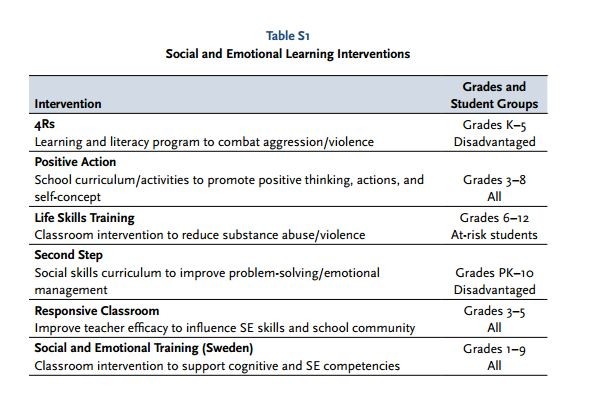Online Debate The costs of a college education outweigh the benefits
Post on: 16 Март, 2015 No Comment

Pro
Rules:
Burden of proof is shared.
No new arguments in round 5.
Drops are not concessions.
Forfeit in any round is an automatic loss.
College is defined as an independent institution of higher learning offering a course of general studies leading to a bachelor’s degree.www.merriam-webster.com. ) No negotiation on this.
Pro
I thank my opponent for accepting.
Benefits
As the majority of this debate will come down to weighing costs versus benefits, we first must know the benefits of a college education.
Properly using the present value of the lifetime earnings, adjusted for the cost of going to college and the difference in the number of working years, and excluding those graduates with advanced degrees, calculated and the three percent discount rate used in the report produces a lifetime earnings differential of only $279,893 for a bachelors degree versus a high school degree.chronicle.com. )
Monetary Costs
This year, according to the College Board, average published in-state tuition and fee plus room/board charges exceed $17,000 at four-year public institutions.www.cnn.com. ) At four year private institutions, this number is roughly $11,500 annually. (in the Charles Miller report). Students are forced finance these costs with large loans, resulting in a student loan debt of tens of thousands of dollars by graduation. Two-thirds of bachelors degree recipients graduated with debt in 2008, compared with less than half in 1993. Last year, graduates who took out loans left college with an average of $24,000 in debt.www.soundmindinvesting.com. ). This greatly limits what can be done by graduates within the first 11 years of their working life. College graduates and postgraduates, instead of buying cars, buying houses, getting married, having childrenin other words, becoming full-fledged consumers are, as Nance-Nash puts it, running back home. That hurts us all.chronicle.com. )
Opportunity Cost
To show that opportunity cost outweighs the monetary benefits of a college education, one must show that there is a better way to spend the money which can not be achieved by going to college. This can be done fairly easily with investing potential. Using the average savings rates, cost of college tuition, student loan interest rates, and investment returns, an individual who invests their college fund instead of spending it will earn $1.3 million by the age of 65. A typical four year college graduate will have less than a third of that.www.nypost.com. ) There are other, similar methods of investment, all of which will result in more money than a college education.
Another form of opportunity cost is the 4-6 years of lost job experience while attending college. With more and more job opportunities opening for those without college degrees, the 4-6 years of additional training and chances for promotion may very well outweigh the $279,893 monetary benefit of college. This job experience can also be gained while investing in the previous scenario.
Shrinking Benefits of a College Education
Recent graduates, which excludes graduates over the age of 25 who where able to find a job before the economic downturn, now have roughly the same unemployment rate as non-degree holders. Over the past year, for example, the unemployment rate for college grads under age 25 has averaged 9.2 percent, up from 8.8 percent a year earlier and 5.8 percent in the first year of the recession that began in December 2007. That means recent grads have about the same level of unemployment as the general population. It also suggests that many employed recent grads may be doing work that doesnt require a college degree.www.nytimes.com. ) The majority of college graduates that do find a job are often underemployed, working as waiters food-service helpers. More than half of America’s recent college graduates are either unemployed or working in a job that doesn’t require a bachelor’s degree, the Associated Press reported this weekend. According to the Census, the number of Americans under the age of 25 with at least a bachelor’s degree has grown 38 percent since 2000. Not nearly enough jobs have been created to accommodate them, which has resulted in falling wages for young college graduates in the past decade, as well as the employment problems we’re now seeing.www.theatlantic.com. ) With food preparation and service receiving the largest job growth between 2000 and 2010, the job opportunities for non-degree holders are only increasing. In fact, among the top 10 with respect to actual job growth, 3 will require a postsecondary degree and only 1 will require a BA.www.educationalpolicy.org. )
The Risks of Attending College
The risk one takes while attaining their college degree is the most important cost to be considered in this debate. These two risks, defaulting on student loan debt and dropping out, go hand in hand.
In the United States, only 46% of all students who started college managed to complete it. The Pathways to Prosperity study by the Harvard Graduate School of Education in 2011 shows that just 56 percent of college students complete four-year degrees within six years.www.reuters.com. ) College dropouts are forced to pay back their debt, but without the benefits of receiving a college degree. Dropouts gain a very minimal increase in wages, and spend years of their lives with nothing to show for it except debt.
Default rates are also abysmally high. 19.2% of borrowers who graduated with a certificate from a for-profit, less-than-four-year institutionwww.educationsector.org. ) A recent study by the Institute for Higher Education Policy found that for every borrower who defaults, at least two more fall behind in payments. The study found that only 37 percent of borrowers who started repaying their student loans in 2005 were able to pay them back fully and on time.www.theatlantic.com. ) With student loans unable to be forgiven through bankruptcy, and with defaulting resulting in tax refunds being offset and wages being garnished, a college education is a high-risk, low-benefit investment.
Con
=Monetary Benefit=
The average cost of college tuition for a State school is roughly $15,000 a year for a 4 year program. [1] This averages out to $60,000 total in college costs after 4 years.
The average salary for someone with just a high school diploma is $23,000 a year. [2]
The average salary for someone with a Bachelor’s degree is $45,500 a year. [2]
With a college education you’re making $22,000 a year more than if you didn’t go to college.
If we average this out, say you get out of college at age 22 and you work until age 65. That’s 43 years of work. Say you’re unemployed or injured for (a generous) 5 of these years. That’s 38 years of work. Over these 38 years a college graduate will make $890,000 MORE than his counterpart that did not go to college.
Subtract out the $60k for college costs and you’ve still got a net profit of $830k that you would not have made if you didn’t go to college at all.
=Social Benefit=

There is a huge social benefit to going to college. Not only do you make lifelong friends and connections, you learn to live on your own. You have to feed yourself, go to class, work, pay your bills, do your laundry etc without your parents help. Those who leave (or don’t leave) at 18 will have the penalty of not having the beneficial college transition into life. After college, students are usually prepared and willing to go out and live and work on their own, completely independent.
While social benefit doesn’t have a numeric value attached to it, it is extremely valuable. You can’t replace the college experience with work experience. The friendships, job connections, skills and social transition are all invaluable and give those who finish college a huge boost over those who did not.
=Opporitunities=
My opponent keeps claiming that college is too risky and that many people shouldn’t even try. But if you don’t go to college at all, if you don’t try for fear of failing etc then you’ll forever shut out the opporitunities that a college education can bring you.
Many jobs REQUIRE a college education. If you don’t have one, you’ll forever be barred from applying for them. Even if you don’t get a job right out of college you’ll always be able to apply for college degree jobs. Those who don’t attend high school will never be able to apply for these, ever. My opponent claims the value of a college education is dropping — then how worthless is not even having one to begin with then?
It is silly to forever shut out ample future opporitunities for better employment, better pay and greater experiences due to the fear of failing. Even if it doesn’t pay off immidiately after you graduate, you’ll always have the degree and the experience to use for the rest of your life.
Individuals with only a high school diploma were twice as likely to be unemployed as those holding bachelors degrees. [3]
You’re more likely to be unemployed. always, without a college degree.
Statistics project that 75 percent of future positions are expected to require at least some type of certification or licensure, and professions that require a bachelors degree are projected to grow nearly twice as fast as the national average, making a college degree a good investment. [3]
All of these positions are forever barred to you without a college education. That severely limits your opporitunity of employment and careers.
=Conclusion=
* There are tangible and large monetary advantages for those with college degrees vs. those without.
* College has social value and provides you skills and experiences that are valuable throughout life.
* A college degree is a permenant asset and a long term plus. You’ll always have it.
* College degrees open up and hold far more opporitunities than just a diploma.
* The costs of a college education are easily outweighed by the abundant benefits.














